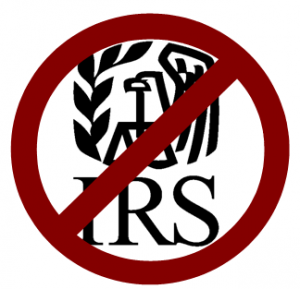“The rule is so broadly phrased and so categorical, it would be totally inappropriate for unions. It would seriously affect their ability to function as membership organizations.”
That was John Sullivan, associate general counsel at the Service Employees International Union (SEIU), quoted in a Washington Post article about the possibility of new Internal Revenue Service (IRS) rules currently aimed at 501(c)(4)s eventually targeting (c)(5) labor organizations or (c)(6) trade associations.
According to the regulation, “The Treasury Department and the IRS are considering whether to amend the current regulations under sections 501(c)(5) and 501(c)(6) to provide that exempt purposes under those regulations… do not include candidate-related political activity as defined in these proposed regulations.”
Under existing rules, (c)(4) social welfare organizations may carry on electioneering activities so long as it does not constitute a majority of their activities.
But with the new rule, limitations will be imposed not simply on advocacy for or against a candidate for public office, as has been the case for over 50 years, but on any communication that even mentions a public official who happens to be a candidate. Specifically, the regulations will define “certain communications that are close in time to an election and that refer to a clearly identified candidate as electioneering communications.”
It applies blackout periods 60 days prior to the general election and 30 days prior to primary elections at the federal, state, and local level.
Yet, the proposed rule only applies to (c)(4)s, not (c)(5)s and (c)(6)s. If it did, not even the SEIU likes the new rules, precisely because they infringe on the political free speech of affected organizations.
That is to say, not only is it “totally inappropriate” for unions, but for anyone who publishes voter guides or holds elected officials accountable for how their policies affect the American people.
So, it should apply to no one.
Perhaps this is why the Framers included a First Amendment protection of the freedom of speech in the first place. To protect everyone from an overreaching government that would invariably seek to insulate itself from criticism through the imposition of censorship.
To give readers an idea of the broad implication of this regulation, Americans for Limited Government is a 501(c)(4) organization whose websites have content dating back to 2008.
Because the articles mention officials who happen to be candidates, we would have to either shut down our website or go article by article to remove ones that those who are running for reelection.
That is, to keep 501(c)(4) tax status, and not be classified as a 527 political action committee. Both are tax-exempt entities, but with one critical difference: 527s have to disclose members to the Federal Election Commission, and 501(c)(4)s do not.
Therein lays the true intent of the new IRS regulation, which is to achieve via regulation what Congress could not when the DISCLOSE Act was defeated in 2010. The Obama administration is threatening to expose organizations’ membership lists in hopes they will discontinue participating in the political process.
Never mind what the Supreme Court stated clearly in NAACP v. Alabama (1958). Then Justice John Marshall Harlan’s majority opinion stated, applying the First Amendment via the Fourteenth, “We hold that the immunity from state scrutiny of membership lists which the Association claims on behalf of its members is here so related to the right of the members to pursue their lawful private interests privately and to associate freely with others in so doing as to come within the protection of the Fourteenth Amendment.”
In short, if Alabama couldn’t do it under Fourteenth Amendment incorporation of the First Amendment as applied to the states, then neither can Congress nor an agency authorized by Congress.
Now someone just needs to remind Obama and the IRS.
Robert Romano is the senior editor of Americans for Limited Government.







